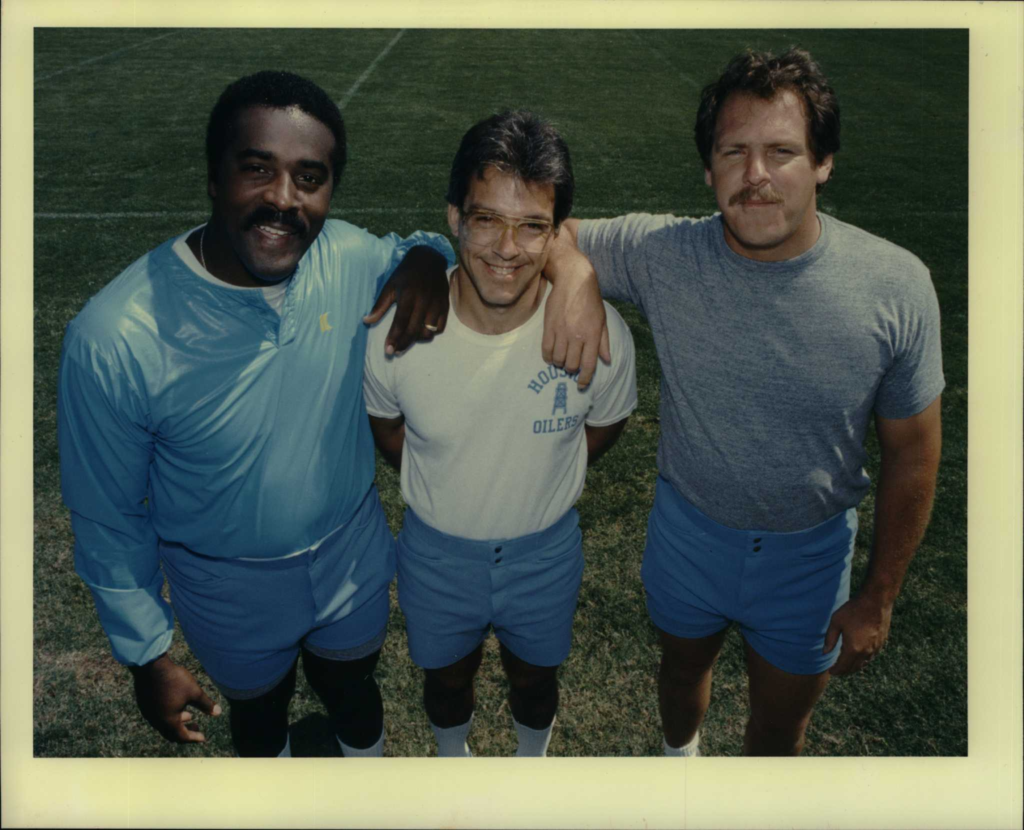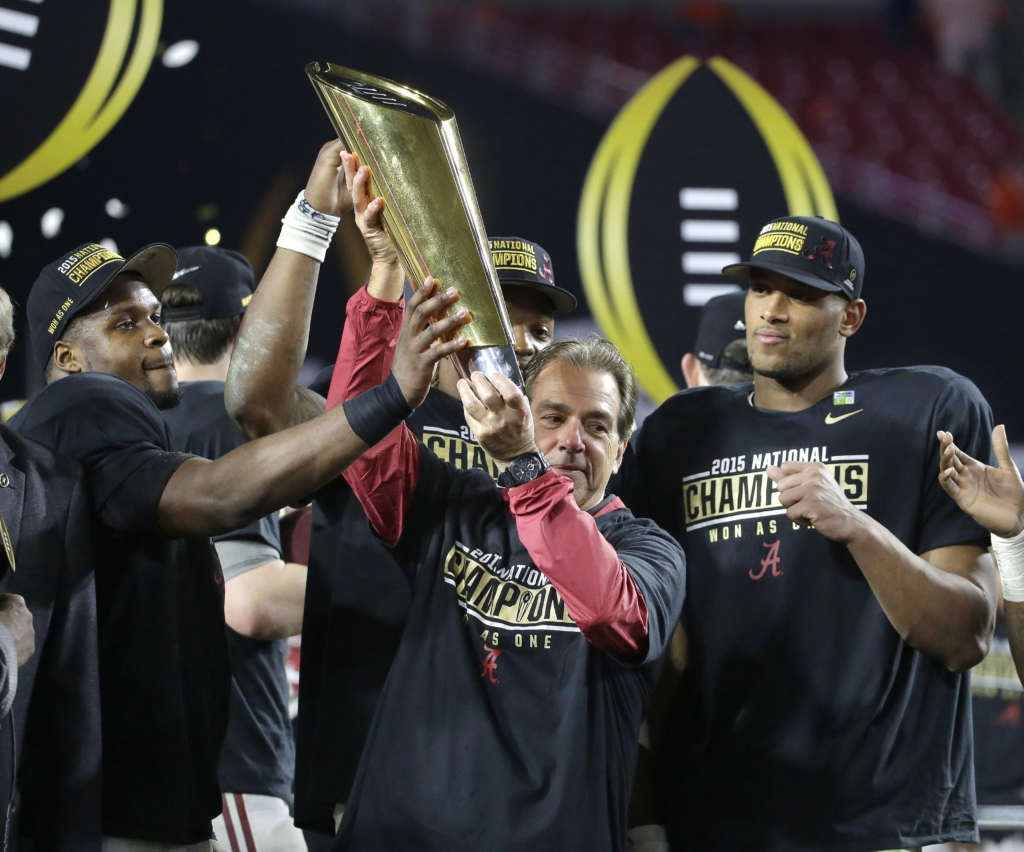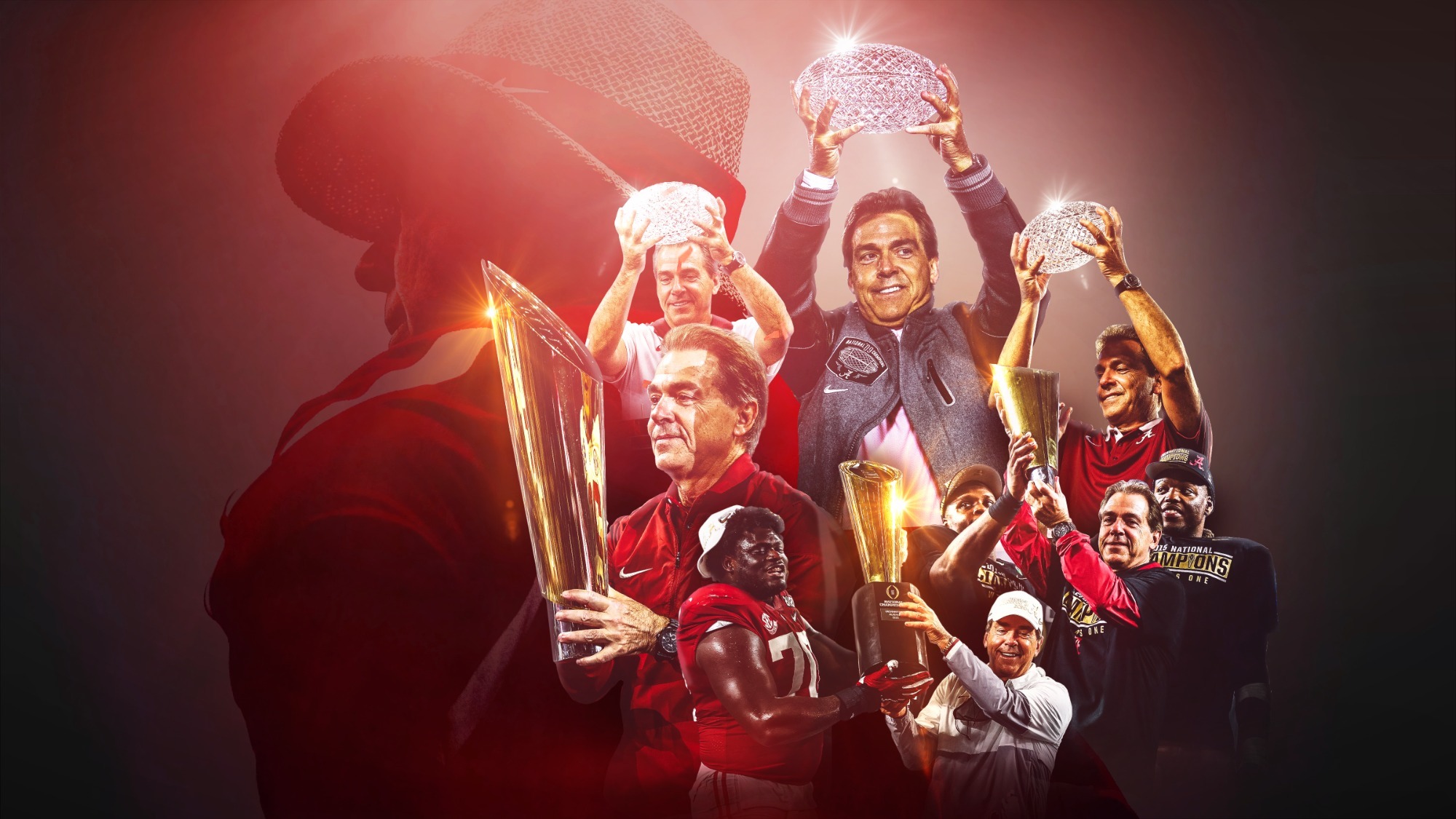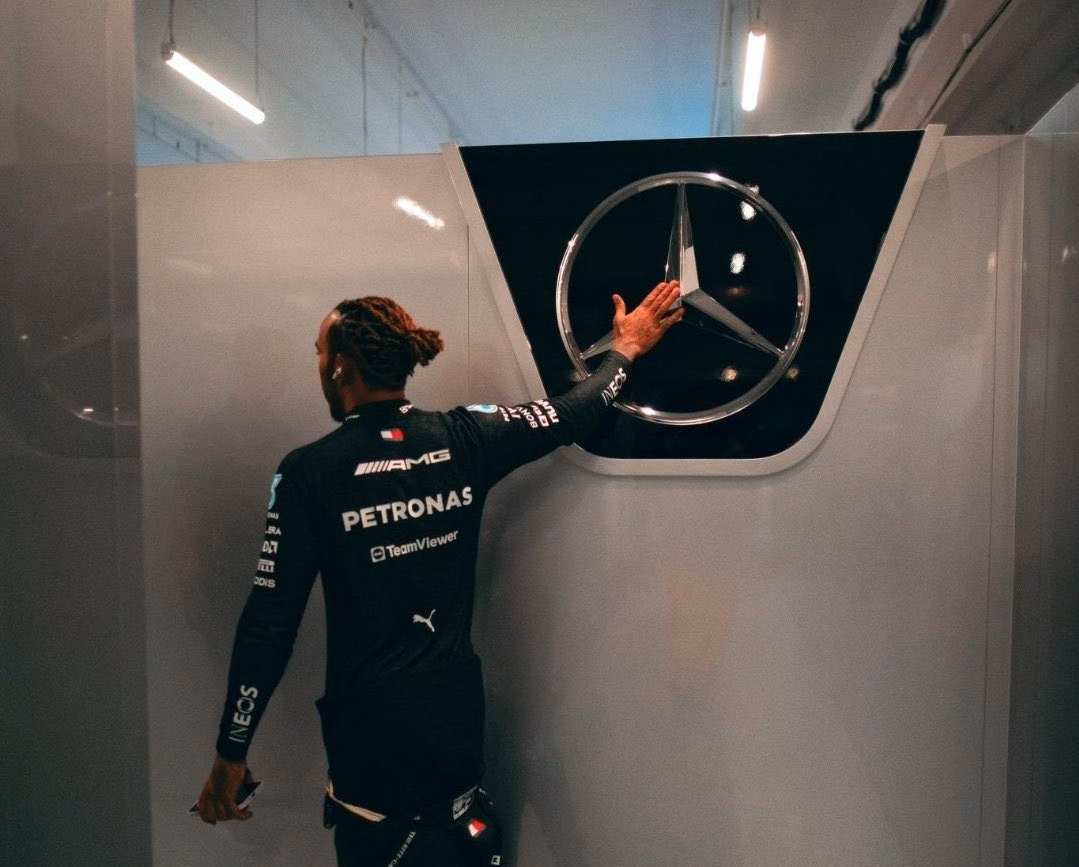On Halloween, 1951, a legend was born in the Appalachian Mountains of West Virginia. That legend’s name? Nick Saban.
After winning seven college football national championships, 11 SEC championships, one MAC title, and a plethora of awards in his time coaching, Nick Saban is planning to retire from coaching.
For all head coaches winning a championship is the main goal. I mean why else would you coach? No one builds a playbook with hopes of losing (unless you are Nick Sirianni).
High school star
Saban got the first taste of his championship ways in high school as the starting quarterback for the Monongah Lions in 1968, winning the Class A State Championship, 21-12 over the Paden City Wildcats.

Saban had an impressive high school career. But putting together a (50-1-1) record would not be enough to earn the 5’6 quarterback the attention of college coaches. He would find a home though with the Kent State Golden Flashes on the defensive side under head coach Don James.

During Saban’s time at Kent State, he earned a bachelor’s degree in business and followed that up with a master’s degree in sports administration. During his time in graduate school, Saban was hired by James to be a GA for the football team. Saban would remain at his alma mater while his wife finished her education.
Chasing the dream
Saban would move on from Kent State to pursue opportunities elsewhere such as Syracuse (1977), West Virginia (1978-79), Ohio State (1980-81), Navy (1982), and Michigan State (1983-87).

After being looked over by Kent State to fill the vacant head coach spot, Saban spent the next two seasons in the NFL with the Houston Oilers (1988-89), before landing his first head coaching job at the University of Toledo (1990) and immediately turned the program around with a (9-2) record and sharing the MAC Championship in his first and only year as a head coach at the school.

Saban would resign from his position to accept an offer to be the defensive coordinator of the Cleveland Browns under then-head coach Bill Belichick. Saban would remain with the Browns from 1991-94.
Back to Michigan State
After his second stint in the NFL, Saban returned to college football and took over a struggling Michigan State program that had not had a winning season in five years. He would help turn that program around and in his final season (1995-99) with the Spartans earn a (9-2) record before resigning to take over at LSU. Saban finished his career at Michigan State with a head coaching record of 34-24-1

SEC meet Nick Saban
It did not take LSU long to find success under Saban, in his first season the Tigers would go (8-4) and earn a win in the Peach Bowl. The following year would be even better for the program with a (10-3) record and a Sugar Bowl victory.
2002 was a rough season for the Tigers as the team would finish (8-5) and lose in the Cotton Bowl to Texas. The team bounced back BIG in 2003 and faced off against the No. 1 ranked Oklahoma Sooners in the BCS Championship game. The LSU Tigers led by Saban would win the title in a 21-14 thriller, giving Saban his first of seven national championships.

2004 was a good year for the Tigers, but it wasn’t enough for them to compete for a consecutive title, finishing the year (9-3) with a loss in the Capital One Bowl. This would be Saban’s final game at LSU, earning a record of 46-16 in his five seasons leading the program.
Third time’s the charm?
Following his success at LSU, Saban was hired by the Miami Dolphins and was back in the NFL for a third time in his coaching career. The Dolphins were fresh off a (4-12) season and were hoping to recreate the success that Saban had found in Baton Rouge.

Unfortunately for them, they did not.
Saban’s first year as head coach of the franchise was an improvement over the previous season, but the first half of the year did not make it apparent. Starting the season with a record of 3-7, the Dolphins put together an unbelievable run to end the year with six consecutive wins to end the year (9-7).
The following season the Dolphins, led by Saban, would finish the year (6-10).
Saban would continuously deny rumors of interest as the University of Alabama sat with a vacant head coaching position, even once saying “I have to say it. I’m not going to be the Alabama coach” during a late-season press conference.
Saban is a great coach, but he was not a good fortune teller.
Back to the SEC

Following a rough year in Miami and a door opening for him to return to the SEC, Saban would be announced as the new head coach of the University of Alabama in January 2007.
Saban would take over a program that wasn’t terrible but wasn’t great either. In his first season leading the Crimson Tide, they would start 3-0, but things would unravel for them during the season and the team would finish with a disappointing (6-6) record (technically 2-6 following NCAA vacating wins this season).
The program would bounce back in 2008, going 12-0 in the regular season before losing to Florida in the SEC Championship game and losing to Utah in the Sugar Bowl to end the year (12-2).
The rest is history
2009 would be one for the books in Bama. Saban would lead his team to a perfect (14-0) record, including winning the BCS Championship against Texas. His second BCS title.

2010 was not a natty year for the program, but it was their third straight 10-win season. The Crimson Tide finished (10-3).
2011 was an exciting year for Alabama as they finished the season (12-1) and faced off against Saban’s former team, the LSU Tigers in the BCS Championship. Saban would go on to win his third national championship after beating the Tigers 21-0 in a shutout.

2012 was a repeat year for Alabama. The program went (12-1) en route to a dominating 42-14 victory over Notre Dame in the BCS Championship. Saban’s fourth national title.
2013/2014 were nearly identical years for the program (11-2) and (12-2) respectively. Both seasons ended in Sugar Bowl losses.
Four consecutive appearances
2015 saw Alabama get back on top of college football as the team went (13-1) and had a fourth-quarter comeback in the CFP National Championship game to earn Saban his fifth national title over the (14-0) Clemson Tigers, 45-40.

2016 saw a rematch of the 2015 CFP Natty and this time Clemson (13-1) would come out on top, 35-31 over the Crimson Tide (14-0)
2017 was the third straight CFP National Championship game for Saban and Alabama (12-1). This time it was against SEC rival Georgia Bulldogs (13-1). Alabama, down 13-0 at half would come back to win in overtime and earn Saban his sixth national title, 26-23.
2018 rekindled the rivalry between No. 2 Clemson and No. 1 Alabama as these teams would be facing each other for the third time in four years with a Natty on the line. Both teams entered the game with a perfect 14-0 record but it was Dabo Swinney and the Clemson Tigers that would emerge victorious in a blowout 44-16 victory.
The rebuild year
2019 was a mediocre year by Alabama standards. The team finished (11-2) and earned a 35-16 win in the Citrus Bowl against Michigan.
Return to Glory
2020 was a strange year, but one thing that made everything seem normal again was Alabama playing in the CFP National Championship. The Crimson Tide dominated the Ohio State Buckeyes in this game and would earn Saban his seventh national championship in a 52-24 ass-kicking.

2021 looked to be a repeat of the previous year, but Kirby Smart and the Georgia Bulldogs had Bama’s number in this one. 33-18 Bulldogs win the Natty over Alabama.
2022 was a quiet year for the Tide. Finishing the year (10-2) and winning the Sugar Bowl 45-20 over Kansas State.
One last ride
2023 will go down in the books for Alabama fans as the final year of the Nick Saban era. After a controversial CFP selection, Alabama had a shot at their seventh title under Saban and he had a shot at his eighth national championship, but Michigan had other plans. In a closely contested Rose Bowl matchup, Michigan would defeat Alabama 27-20 en route to their eventual championship the following week.

Then a few days later, the news leaked, ‘Nick Saban to retire.’ College football was sent into a frenzy. Everyone knew the day would come eventually, but no one was truly ready for it. A long legacy built on winning and excellence is what Coach Saban leaves behind.
I think the fact that non-Bama fans are celebrating his retirement speaks volumes about the impact Saban had on college football as a whole.
I think that he is the greatest to ever do it. The success he found in Alabama has been nothing short of incredible. There have been many great coaches over the years, but Nick Saban has been the most dominant coach in college football during the most competitive era in college football. That has to mean something, right?
You can hate the man all you want but I can guarantee one thing: he beat your favorite team.





